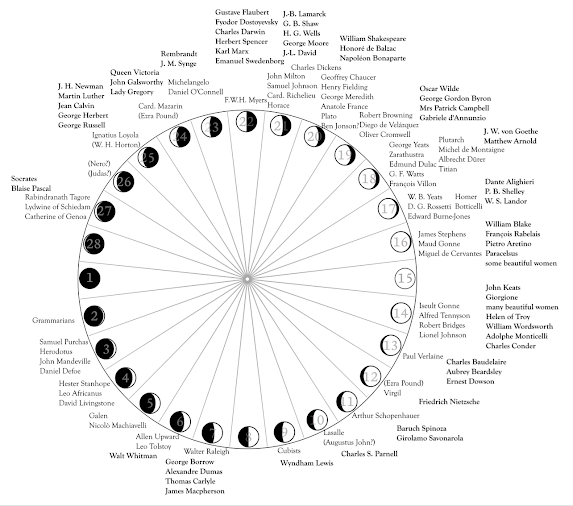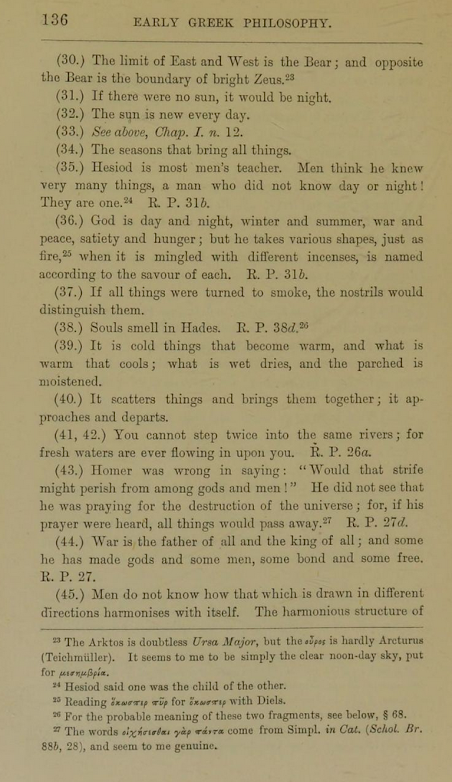(This follows on from the first post, which is here)
Assigning the phases
At least at the initial stages, the assignment of people to their phases was done by George Yeats or the voices speaking through her hand. Yeats appears to have accepted what his wife wrote to a large extent—there are tweaks, questionings, and changes, but in general he sought to understand what she gave him in its own terms.
As with the rest of the script, the names were assigned in
the to and fro of the dialogue between the couple, and most of them appeared
during relatively few sessions early in the automatic writing sessions in
December 1917 and January 1918. So on the pages shown above, from 21 December 1917, just two months
after the script had started, we have the guide called Leaf assigning—any prompting—Tennyson
to Phase 12, Goethe to 18, Dante to 17, and Wordsworth to 14 in order to illustrate a question about literary style. Then
Rossetti is assigned to 14 and Browning to 19 in response to WBY’s questions.
More than a few of these attributions were later changed
so that, despite the communicators' input, the Yeatses eventually put Keats at
Phase 14 rather than Phase 12, closer to the Full Moon or Beauty but no longer
the phase of the hero. Tennyson was also moved from 12 to 14. These were
brought together in a list in 1918, only some of which were included in A Vision. (Not all of the names in A Vision are on this early list, but
most of them are.) Excluding some fictional characters and categories there are
about a hundred names in total.
In the amplified Wheel that follows, the inner names here are those that were not
included in A Vision. The earlier phases are far fuller, while the antithetical phases are really just "more of the same", just adding more names and data points to the sample.
 |
| The Great Wheel including most of the names from the 1918 lists and A Vision. |
Though the panoply is a little overwhelming at first, it also has some of the fascination of Judy Chicago's The Dinner Party (1974–79) or of Simon Patterson's The Great Bear (1992)—who is chosen? what are the connections? how do they relate?
 |
| Judy Chicago, The Dinner Party |
 |
| Simon Patterson, The Great Bear |


